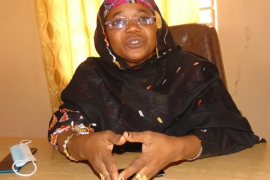Korean born Haejoang Cho, also known as Haejoang Cho Han; Han being her mother’s family name is a Professor Emeritus of the Department of Cultural Anthropology at Yonsei University, Seoul, South Korea.
Haejoang Cho has been a prolific and inspiring writer about gender, culture, education, and post-colonialism. Her works debunk many widely shared myths in Korean society. She made several daring attempts to cross the boundary between academia and non- academia–such as initiating a movement to use both parents’ last names, which contributed to the historic decision to abolish the patriarchal “family registry system.”
Cho Haejoang is a cultural anthropologist in training with a first degree in History from the Yonsei University (1971), a Master’s degree in Anthropology from the University of Missouri, Columbia, USA (1974) and a PhD in Anthropology, from the University of California, Los Angeles, USA (1979). She is also a feminist by faith.
Her early research focused on gender studies in Korean modern history; her current interests and research are in the area of youth culture and modernity in the global/local and post-colonial context of modern-day Korea. She is the author of [Women and Men in South Korea](1988), [Reading Texts, Reading Lives in the Postcolonial Era] 3 volumes (1992, 1994), [Children Refusing School, Society Refusing Children] (1996), [Reflexive Modernity and Feminism] (1998), and [Children Searching School, Society Searching Children] (2000), [Talking at the Edge: Letters Between Japanese and Korean Feminists] (2004, coauthored with Ueno Chizuko),[It’s Life-Learning Village Again](2006), and [Back to the Classroom: Reading Text and Reading Everyday Lives in Neo-liberal Era](2009). They are all in the Korean language. Two books are translated into Japanese; [Korean Society and the Gender] (Hose University Press) and [Can the Words Reach?](Iwanami Publisher coauthored Book with Ueno).
Prof. Haejoang teaches Gender and Society, Cultural Anthropology in the Globalizing World, Issues in Cultural Studies, Culture and Ecological Project of Network Societies, and Creating Public Space as Post-capitalistic Politics. Cho is also the founding Director of Haja centre (The Seoul Youth Factory for Alternative Culture) which is an alternative educational and cultural studio for the teenagers since 1999. The Haja project has been launched as a part of ‘action research’ of solving the problems of youth from the perspectives of feminism, cultural studies and ecological studies in the rapidly globalizing East Asian context.
In her books, she particularly focuses on splitting South Korean public responses into two antagonistic groups, that is, those who say to “never forget!” and those who urge to “forget and go back to normal life!” Cho will elaborate concepts of ‘risk society’ and ‘reflexivity’ (Ulich Beck) and ‘mourning’ and ‘violence’ (Judith Butler) in her analysis of compressed modernity and global capitalism as lived experience of people in South Korea.
She has proved to be a reputable mentor in her chosen field of career and one to be reckoned with. Her works and astuteness set her on a pedestal for others in the field and those aspiring to be in the academia to emulate.




